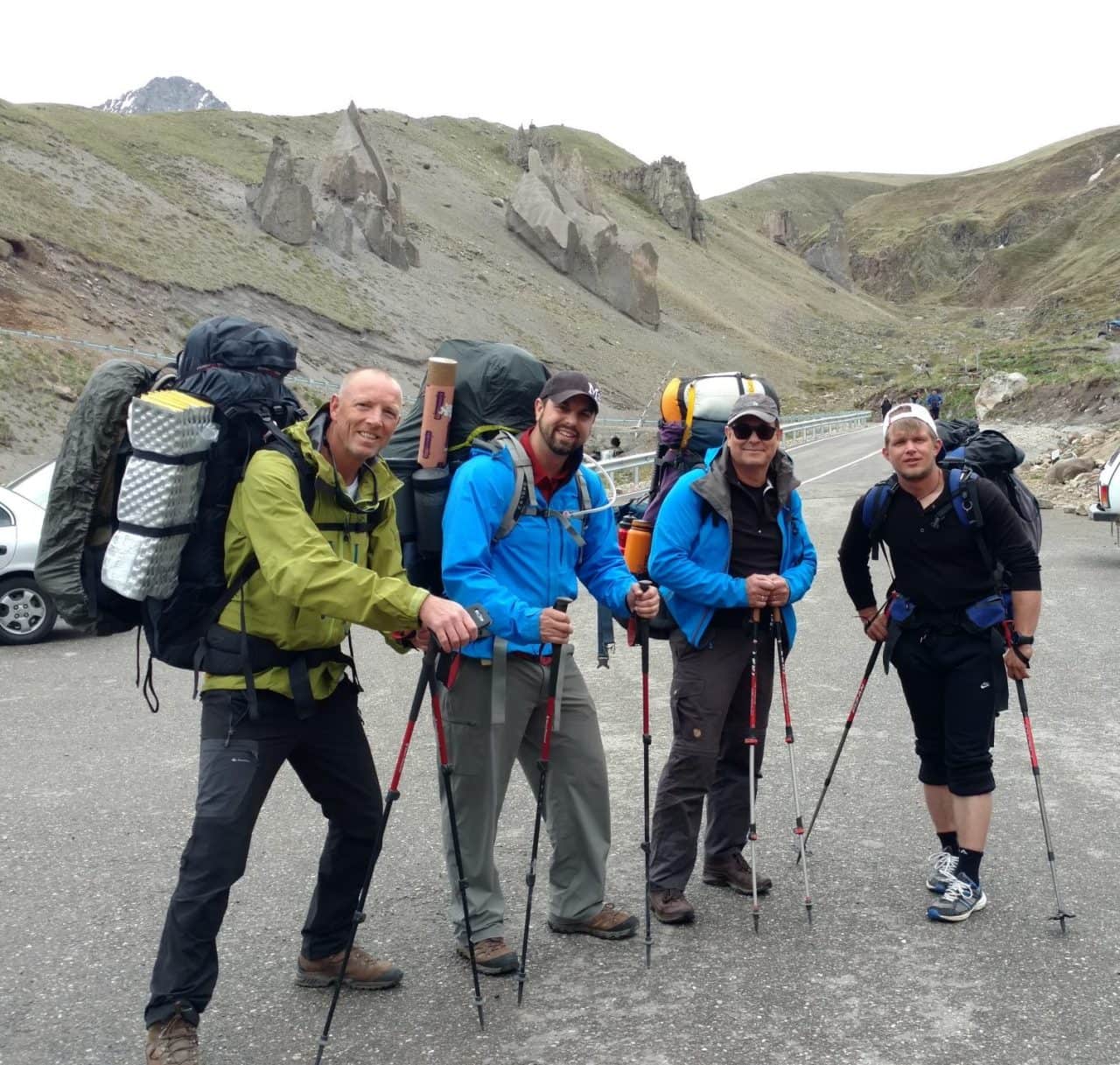Helping VA Make Outdoor Recreation More Available to Veterans
Written by Anne Wright

Written by Anne Wright
Who says therapy can’t be fun? Many people reap mental, as well as physical, health benefits from spending time outdoors, whether it’s biking, walking or just sitting on a beach watching the sunset. In particular, research has shown that outdoor recreational activities could help improve Veterans’ well-being.

Ben at Palmer Glacier, Mt. Hood National Forest, Oregon
Marine Corps Veteran Ben Ambrose will attest to that. An avid alpine climber and outdoorsman, Ambrose has spent countless hours preparing for climbs within and outside the United States, including Mount Hood National Forest in Oregon, Mount Kilimanjaro in Tanzania and Mount Aconcagua in Argentina. In addition to inspiring hope and confidence in himself and others, climbing has contributed to Ambrose’s physical health by helping him control his diabetes.
“Spending time outdoors — whatever the activity — is good for both mind and body,” said Ambrose, a portfolio manager with Aptive’s Veteran Health team. “Veterans who engage in outdoor activities with other Veterans can find the experience both rewarding and especially impactful, not only for them but also for others around them. We tend to surround ourselves with people we want to emulate, people we want to be like. This type of impact spreads like wildfire.”
Toward that end, Congress asked the Veterans Health Administration (VHA) to create a Task Force on Outdoor Recreation for Veterans to encourage them to use outdoor land and spaces for recreational activities. Included are all national parks, such as Yellowstone National Park and Rocky Mountain National Forest, and recreation areas, state lands and public parks, such as the Shenandoah River State Park and Eldorado Canyon State Park.
The Veterans Comprehensive Prevention, Access to Care, and Treatment (COMPACT) Act of 2020 (Section 203) requires the task force to identify barriers that keep Veterans from accessing public outdoor space and create opportunities to coordinate efforts with public land agencies and partner organizations such as the National Park Service to use these areas to promote the health of Veterans and their caregivers. The 11-member task force, which includes representatives from six government agencies in addition to VHA and four Veteran outdoor recreation groups, will put their recommendations in a report for Congress.
Identifying Opportunities to Increase Access

Ben and climbing friends at Rocky Mountain National Forest, Colorado
To help implement the task force requirements, VHA partnered with Aptive HTG, which has extensive experience working with the agency and with Veterans. Aptive HTG is responsible for researching discounts and programs offered to Veterans at state parks in 50 states and territories; overseeing the Federal Register process to publish a Request for Information and responding to public comments; and helping to develop reports for Congress.
Aptive also facilitates five to seven sessions of task force meetings yearly; prepares ad hoc reports, white papers and stakeholder engagement papers; and supported the task force with conducting a literature review and VA employee survey to collect feedback on problems encountered in making parks more accessible to Veterans.
Some potential barriers the task force will address in its recommendations report include:
Reaping Health Benefits of the Great Outdoors
“Usually, mental health treatment for Veterans focuses on more formalized methods of therapy, so this approach is unique,” said Denise Idun-Nayarko, a project manager on Aptive’s Veteran Health Team. “We have been hearing how these kinds of outdoor experiences have been helping Veterans feel as good as, or even better than, their medicine does in some cases.”
The goal of the task force is to increase overall access to outdoor recreation sites for Veterans, regardless of location, according to Idun-Nyarko.
“There are outliers that exist and a lot of that is due to the lack of standardization across the board,” said Idun-Nyarko. “The task force wants to increase standardization to increase access.”
Making more Veterans aware of parks and other outdoor spaces and increasing their accessibility are important steps toward improving Veteran mental and physical health, according to Ambrose.
“It’s heartwarming to see Aptive involved in this kind of initiative to promote Veterans’ health,” Ambrose said. “There are many ways to spend time outdoors. Like any challenge, climbing a mountain is done one foot at a time, relying on each other for support. So take that first step.”
The recommendations report to Congress is due in September 2024. “Hopefully, Congress will want the task force to begin implementing the report’s recommendations,” said Idun-Nyarko. “Outdoor recreation is gaining traction among Veterans, and we want that to continue so they can reap the great health benefits it provides.”